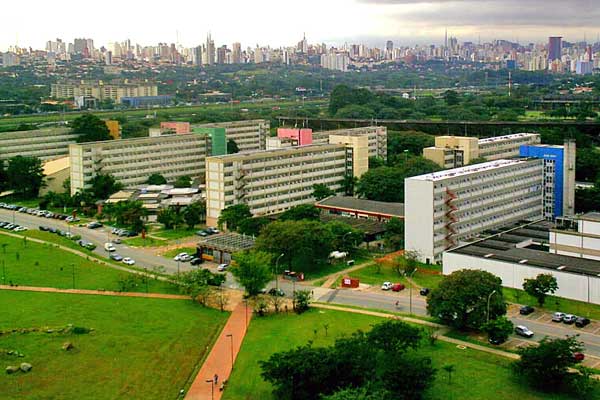RIO DE JANEIRO, BRAZIL – Brazil overtook Italy and Spain and rose from 9th to 7th place among countries with the most institutions ranked among the best universities in the world by the British magazine Times Higher Education (THE), one of the most influential in the evaluation of higher education in the world.
The United States tops the country list with 172, while Brazil has 46 such institutions. The best-placed – also the leader in Latin America – is the University of São Paulo (USP). However, according to THE, educational funding issues and Jair Bolsonaro’s “hostility” to higher education have negative effects.

This survey’s data, which included 1396 universities in 92 countries and regions, was released on Wednesday, September 11th. The leader is Oxford University in the United Kingdom, also the top rated university last year.
Brazil remains out of the top 250 highest ranks – USP ranks between 251-300 (after 200th place, institutions are classified in ranges), the same as last year.
The next best ranked Brazilian institution is the State University of Campinas (Unicamp), which was within the 501-600 range, but declined from the previous ranking, where it was in the 401-500 group. Among the other Brazilians institutions listed, almost all are public.
Chile, the second-best Latin American country in the survey, has 18 representatives. Among the emerging nations, the highlight goes to China. According to the magazine, Asia has increased its importance in the ranking, threatening the predominance of the United States and Europe.
The survey is based on 13 performance indicators, which include factors such as teaching, research, citations in scientific journals, patent registration and internationalization.
Ellie Bothwell, THE’s ranking editor, described the fact that Brazil has progressed in relation to the previous year in terms of its number of representatives as “an achievement”. “However, it is regrettable that all the new registrations (the institutions that have entered the list) in Brazil are out of the top 1000 and that several others are left out of the table.
“The constant funding issues and the lack of a higher education strategy do not help to solve this problem,” she said. “Global higher education is becoming an increasingly competitive field as Asian institutions continue to grow and Brazil will have to work harder to make positive progress on the table. To this end, the current government’s growing hostility to higher education inspires little confidence,” said Ellie.

Since April, budget blockades at federal universities and graduate schools have prompted criticism and protests against the Bolsonaro administration. According to professors, scientists and students, the lack of resources may paralyze research and force talent to leave academia or migrate abroad.
In federal universities, this is now affecting academic activities, with the suspension of exchange programs, transportation and even air conditioning. The federal government is justifying budgetary contingencies as a result of the fiscal restriction scenario and states that the priority until 2022 will be to invest in basic education.
The Minister of Education, Abraham Weintraub, stated he respected the assessment made by the magazine and said that the position in the ranking depends on how the study was conducted. However, he criticized the editor’s comment. “It was ungraceful on her part. And it does not add anything,” said the head of the portfolio. “She needs to stick to the data.”
Source: Estadão

